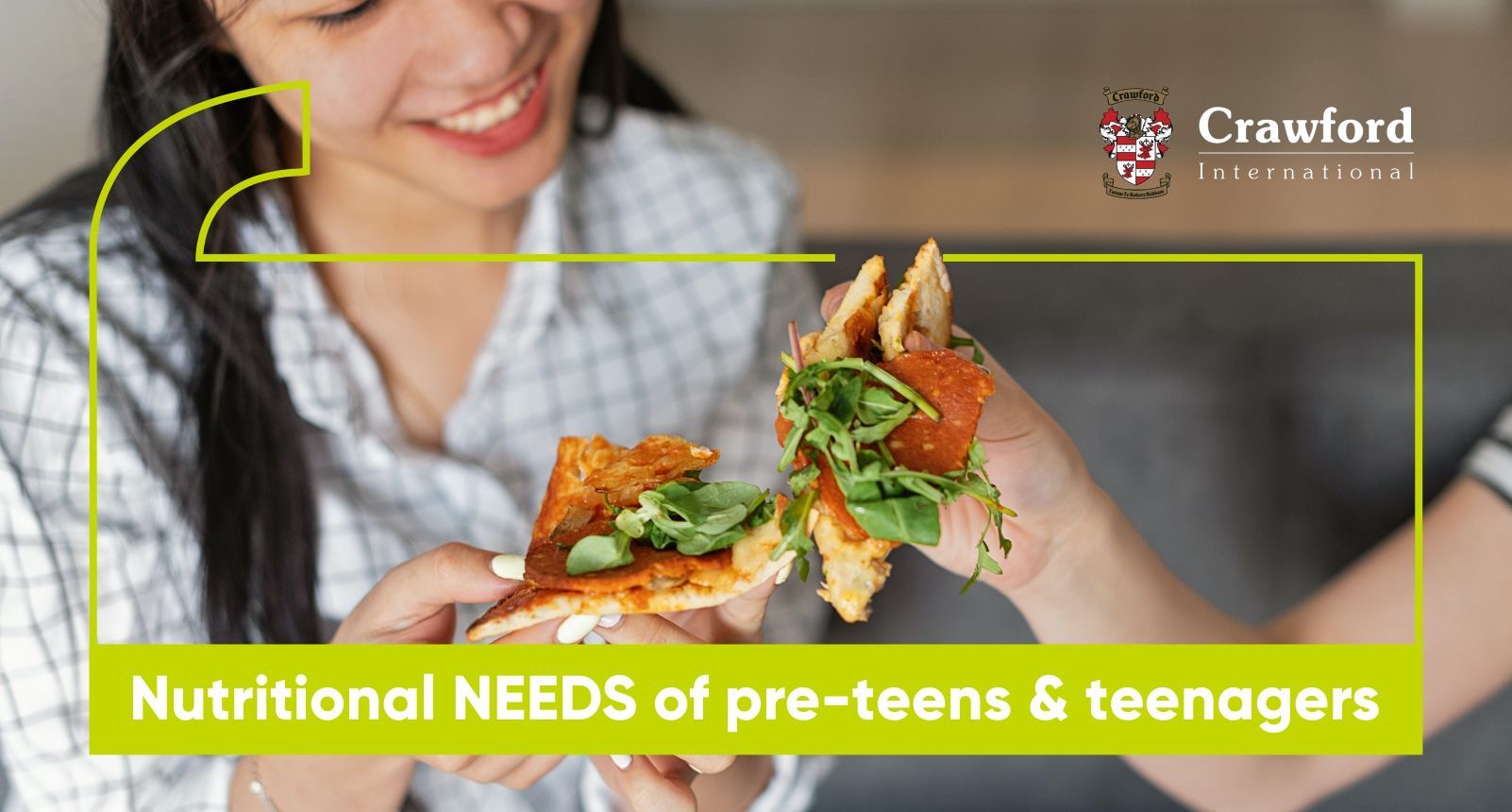Foods for Teens & Tweens
February 3, 2023
Here’s what your pre-teen and teen’s nutritional needs look like as they go through this period of drastic growth.

You’ve probably noticed your child’s appetite growing in leaps and bounds too – and it’s not necessarily their increased extra-murals and social life at play. The onset of puberty and adolescence mean rapid growth in their bodies and brains, which means they need a bit of extra fuel in the form of healthy nutrition.
Important nutrients for pre-teens and teenagers
Between the ages of 9 and 18 years, your child’s body goes through some drastic changes. You may notice more lean muscle making an appearance as your child goes through a significant growth spurt, metabolisms speed up during puberty, and the onset of periods also influence nutritional requirements.
It’s common for adolescents to take control of their eating habits and they may be eating meals away from home as they engage in sports or cultural activities and spend time with their friends. This could mean that they lean more towards grabbing the most convenient foods available or eat what their friends are eating. But it’s also important to instil positive habits around nutrition now so that your child is empowered to make lifelong healthy food choices with a nutrient-dense diet.
Protein is still important to help your adolescent’s body in muscle development and repair. These foods – lean meat, fish, nuts, eggs, etc. – are also often rich in iron and Omega fatty acids. Think of that waist-height little boy shooting up to tower over you in the matter of months, and it’s no wonder. Yet, their growing bodies don’t need much extra protein than they were getting before, and their existing diet is probably giving them enough of this nutrient already.
Carbohydrates give your child the energy they need to get through their demanding days. In fact, over half of your adolescent’s energy demands are fed by their carb intake, so you want to be sure that they include a variety of fruits, vegetables, and wholegrain foods (pasta, bread, cereals).
Healthy fats are essential in helping those growing brains and bodies. There are some vitamins that need dietary fat in order to be absorbed by your child’s body. What’s more, the appropriate amount of Omega-3 fats in the diet also helps combat inflammation while promoting brain development. Now is the time to instil the intake of good fats instead of turning to unhealthy saturated and trans-fats that can build up in the arteries and cause cholesterol.
There are a few vitamins and minerals that become especially important now. Calcium is one – this time is a crucial stage for bone growth. Be sure to include milk, yoghurt, and cheese, as well as dairy-free calcium-rich foods like tofu, nuts, seeds, even tinned fish with small, chewable bones, in their diets. Vitamin D goes hand-in-hand with calcium in growing and maintaining strong, healthy bones. Lastly, iron requirements increase in the teen years, so foods like raisins, beans, spinach, broccoli, etc. become key.
Water is still a must! Not only is it the most affordable way to hydrate, but the most effective too. Remember that they need more water on hot days, when they’ve been sweating a lot, and when ill.
Feeding your pre-teen
Between the ages of 12 and 13, your child’s daily diet should include:
2 servings of fruit
5 to 5½ servings of vegetables
5 to 6 servings of whole grains
2½ servings of proteins
3½ servings of dairy
Feeding your teenager
From 14 to 18 years, your teen’s daily nutrition should include:
2 servings of fruit
5 to 5½ servings of vegetables
7 servings of whole grains
2½ servings of proteins
3½ servings of dairy
Cut down on ‘sometimes foods’
Try to teach your child to limit foods that contain a lot of salt and sugar, and to avoid things high in saturated fats and low in fibre. Unfortunately, this cuts out a lot of the most convenient foods, as well as the tastiest treats – slap chips, crisps, burgers, pizza, cake, chocolate, pies, biscuits, and doughnuts. Sports drinks and sweet drinks may not be the best idea either. Rather turn to the healthier options for everyday eating and eat these as special treats every now and then.
And when it comes to coffee and other caffeine-laden drinks, the guidelines are that it’s a no-no. Caffeine affects how much calcium the body can absorb – not something you want to influence during this period of bone growth. What’s more, it’s a stimulant and can result in fluctuations in energy levels and disrupted sleep, which is another must-have for your teenager. See why, in this Crawford parenting article.












